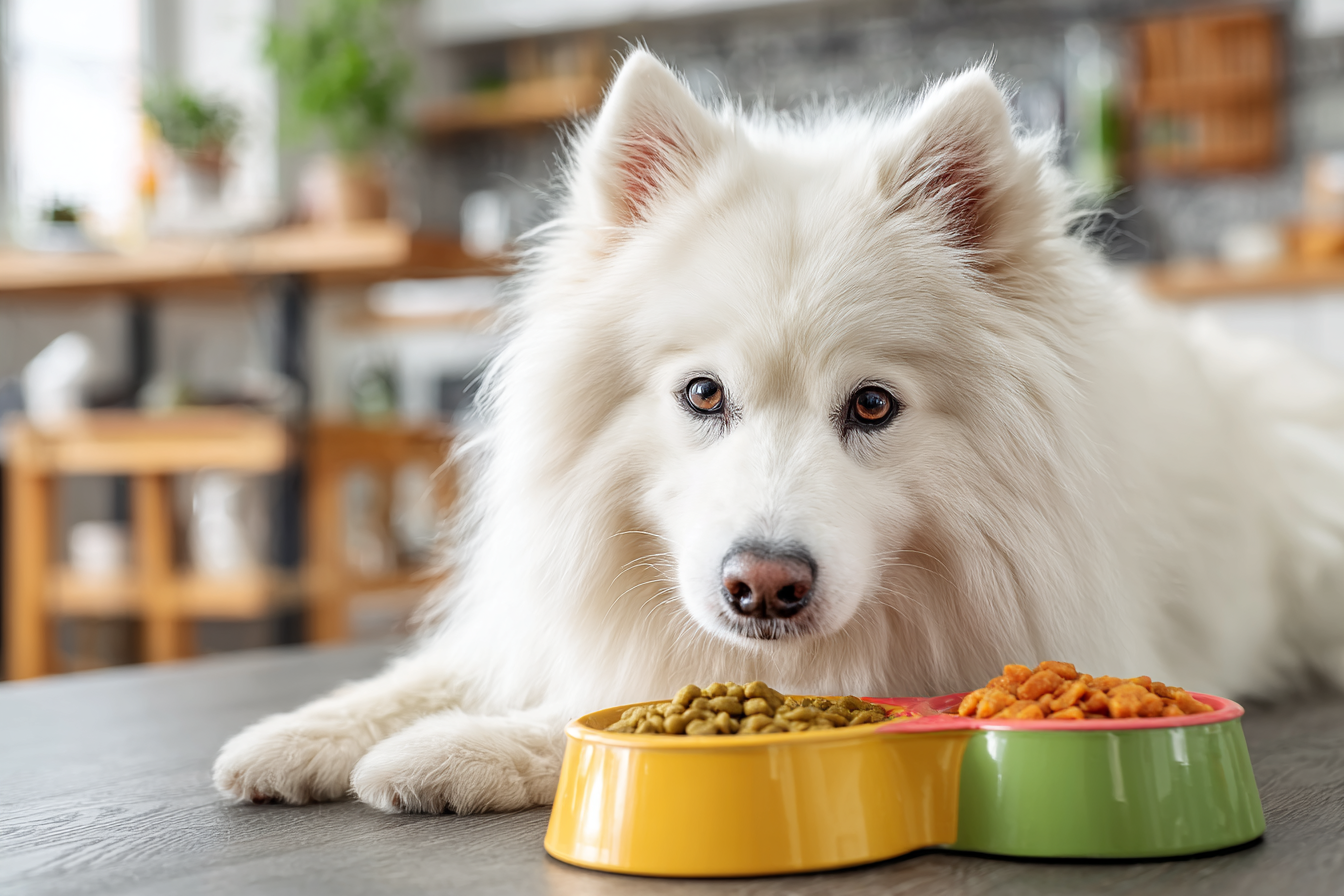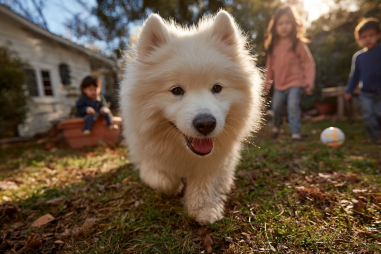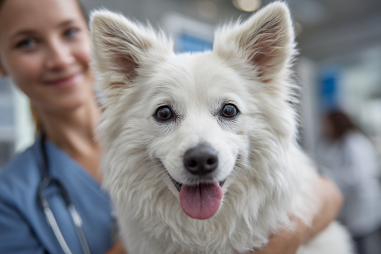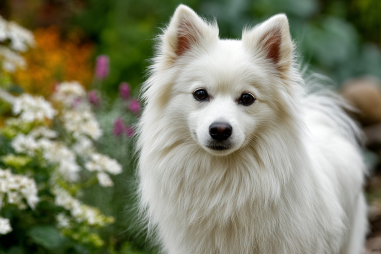Providing the right diet and nutrition is crucial for keeping your American Eskimo Dog healthy, energetic, and happy. This breed is known for its fluffy white coat, intelligence, and lively personality, all of which thrive best when fueled by proper nourishment. Understanding the specific dietary requirements tailored to the American Eskimo Dog helps prevent health issues, maintain ideal weight, and support overall well-being throughout their life stages. Let’s explore everything you need to know about feeding your American Eskimo Dog the right way.
Nutritional Needs of American Eskimo Dogs
American Eskimo Dogs are moderately active and intelligent dogs, making their nutritional needs important to support both their physical and mental stamina. Their diet should be well-rounded, containing balanced levels of protein, fat, carbohydrates, vitamins, and minerals. Protein is essential for muscle maintenance and repair, especially since this breed is lively and often involved in play or training sessions. Fats provide concentrated energy and help maintain the shine of their distinctive fluffy coat. Carbohydrates offer fuel for daily activities, but they should come from quality sources to avoid unnecessary weight gain.
Additionally, essential fatty acids like Omega-3 and Omega-6 support skin and coat health, while antioxidants and vitamins contribute to their immune system function. Adequate calcium and phosphorus are vital for bone development, especially in younger dogs. When these nutritional elements are carefully managed, your American Eskimo Dog will stay vibrant and healthy throughout the years.
Recommended Food Types and Ingredients
Choosing the right food is a cornerstone of proper nutrition for your American Eskimo Dog. High-quality commercial dog foods formulated for medium-sized breeds or those labeled as suitable for active dogs are often a good starting point. Look for brands that list meat or fish as the first ingredient, ensuring a rich protein source. Chicken, turkey, duck, lamb, and fish like salmon provide excellent proteins and are well-digested by American Eskimo Dogs.
Besides meat, wholesome carbohydrates like sweet potatoes, brown rice, and oatmeal are appropriate sources of energy and fiber. These complex carbs help maintain steady blood sugar levels and promote digestive health. Including fruits and vegetables such as blueberries, carrots, and spinach adds natural vitamins, minerals, and antioxidants to their diet.
Homemade diets can also work well, but they require careful planning to avoid nutritional imbalances. Consulting with a veterinarian or a canine nutritionist ensures the homemade meals contain all necessary nutrients. Avoid fillers, artificial additives, excessive grains, or by-products in your dog’s diet to promote longer-lasting health benefits.
Portion Sizes and Feeding Schedules
Feeding the right amount of food and adhering to a consistent schedule helps regulate the metabolism and prevent overeating in American Eskimo Dogs. Typically, adult American Eskimo Dogs weighing between 20 to 40 pounds require about 1 to 1.5 cups of high-quality dry food per day, divided into two meals – one in the morning and one in the evening. However, this amount should be adjusted based on your dog’s age, activity level, metabolism, and individual health needs.
Puppies, being more active and still growing, need more calories per pound of body weight and usually benefit from three to four small meals daily. Senior dogs with reduced activity might require fewer calories to prevent weight gain, so portion control becomes even more critical.
Always monitor your dog’s weight and body condition to tweak feeding amounts accordingly, and resist the temptation to over-treat. Consistent feeding times also help reduce digestive issues and encourage a stable daily routine.
Foods to Avoid
Certain foods can be harmful or toxic to American Eskimo Dogs and should be strictly avoided. Here are common foods that you should never feed your dog:
- Chocolate: Contains theobromine, which is toxic to dogs and can cause vomiting, seizures, or death.
- Grapes and raisins: Can cause kidney failure in dogs even in small amounts.
- Onions and garlic: Contain compounds that can damage red blood cells, leading to anemia.
- Avocado: Persin in avocados can be toxic and cause stomach upset.
- Xylitol: A sweetener in sugar-free gum and candy that can lead to rapid insulin release and liver failure.
- Alcohol and caffeine: Both are harmful to dogs and should be avoided entirely.
- Cooked bones: Can splinter and cause internal injuries or choking.
Maintaining a safe environment by keeping these foods out of reach helps protect your American Eskimo Dog from accidental poisoning and health complications.
Supplements for Skin and Coat Health
The beautiful double coat of the American Eskimo Dog requires special attention to maintain its softness, shine, and health. Nutritional supplements can complement a balanced diet, especially for dogs prone to dry skin, allergies, or shedding issues.
Omega-3 and Omega-6 fatty acids, often found in fish oil supplements, promote healthy skin cell growth and reduce inflammation. These supplements are beneficial if your dog spends a lot of time outdoors or has sensitive skin. Vitamin E is another vital antioxidant that supports skin health and can be found both in foods and supplements.
Always consult your veterinarian before starting any supplement regimen to determine the proper dosage and ensure the supplements won’t interfere with any medications or conditions.
Hydration Tips
Proper hydration is just as important as nutritious food for the American Eskimo Dog’s well-being. Always provide fresh, clean water available to your dog throughout the day. Active dogs, especially those that exercise regularly or in warmer climates, will require more water to stay hydrated.
Encourage good drinking habits by routinely replenishing water bowls and keeping them in accessible and clean areas. In some cases, feeding wet dog food or adding water or broth to dry kibble can also increase fluid intake. Avoid offering sugary or flavored beverages, as they can be harmful.
Adjusting Diet for Different Life Stages
The dietary requirements of an American Eskimo Dog vary throughout its life stages, so it’s essential to adapt their nutrition accordingly.
Puppies
Growing American Eskimo puppies need higher-quality protein and calories to support their rapid development. Choose puppy-formulated foods rich in DHA and calcium to encourage brain growth and strong bones. Feed multiple small meals throughout the day to maintain their energy levels.
Adults
Adult dogs require maintenance diets that balance nutrients for sustained energy and health. Monitoring calorie intake and meal portions helps maintain ideal body weight and prevents obesity.
Seniors
Older American Eskimo Dogs typically have slower metabolisms and reduced activity levels. Senior dog foods with lower calories, added fiber for digestion, and joint-support nutrients such as glucosamine and chondroitin can promote longevity and comfort.
Regular veterinary checkups help identify any specific health needs or dietary modifications necessary as your dog ages.
Feeding your American Eskimo Dog a thoughtfully balanced diet tailored to their unique requirements is key to a long, healthy, and joyful life. From choosing high-quality ingredients to maintaining proper portions and hydration, your care plays a vital role in supporting the vitality and beauty of this wonderful breed. Remember to stay attentive to your dog’s changing needs through the different life stages and always consult your vet with questions about diet and nutrition. With the right approach, your American Eskimo Dog will continue to thrive and bring happiness to your home for many years.







